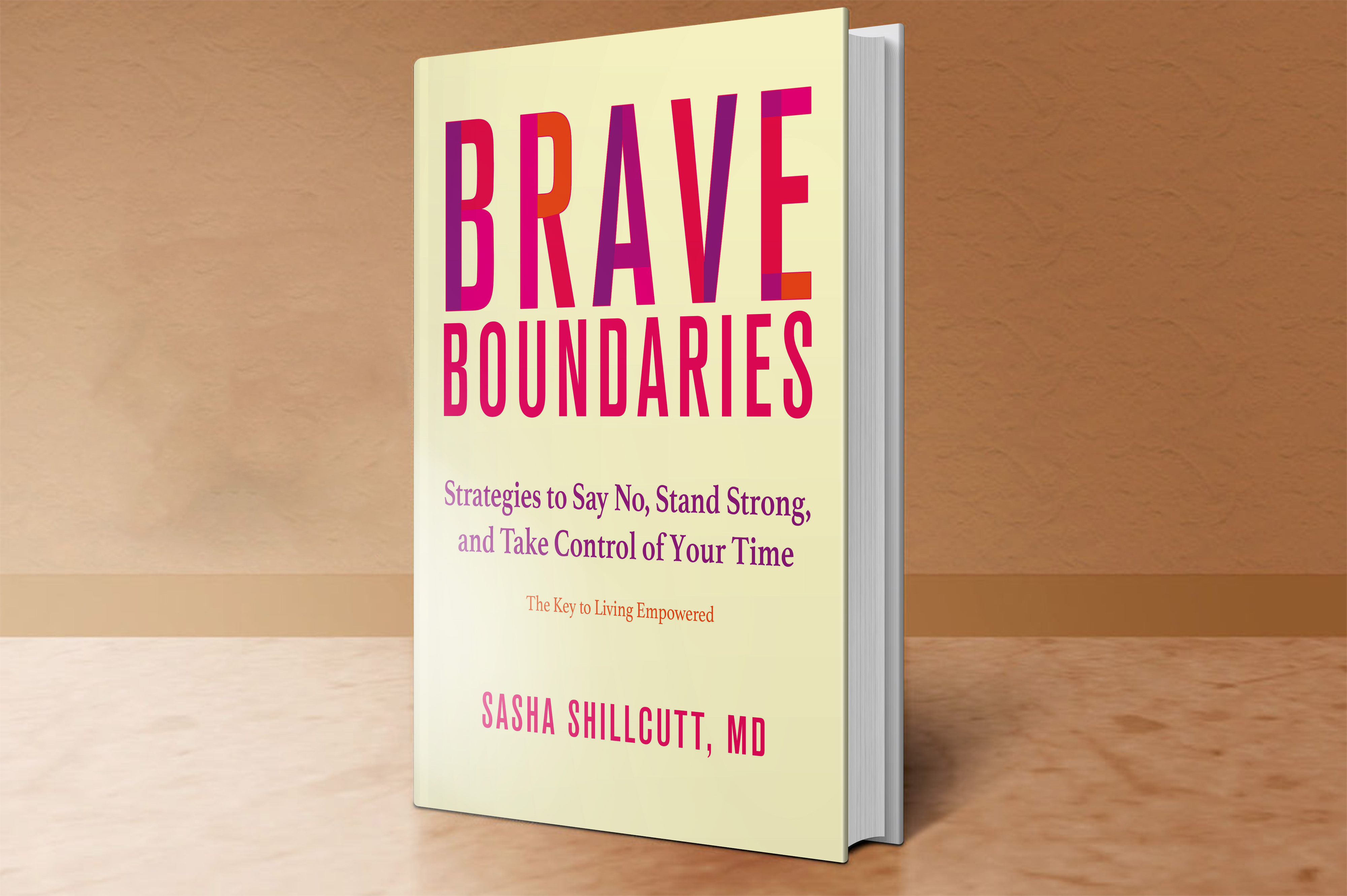5 Important Steps to Standing Up for Yourself as a Woman Physician
Feb 17, 2023
As a woman physician, I know that I am playing a critical role in delivering patient care and improving the health issues of the individuals and communities I serve. However, navigating the challenges and obstacles of this field can be tough, especially when it comes to standing up for myself. As women physicians, we often find ourselves in situations where we have to stand up for ourselves and be the hero, be the voice, and be the action.
Standing up for yourself is a crucial life skill in the medical field.
Being a woman physician requires taking the lead in advocating for yourself and your patients. In this male-dominated medical profession, having the skills and confidence to speak up and make our voices heard is a good idea. Doing so paves the way in positively impacting the daily life of those we serve and even our lives. Remember, we are highly trained and skilled professionals, and our own needs, opinions, and boundaries are just as valid as anyone else's.
In the long run, no one will do it for you except you.
Confidence is Key
As a healthcare provider, I understand that standing up for myself can be challenging, especially in a male-dominated field. I've had many learning experiences over the years to find that confidence is key in these situations. When I exude confidence, I am more likely to be taken seriously and respected by my colleagues and patients. Confidence gives me the courage to speak up and assert my opinions. Opinions do not need to be given in an accusatory fashion, but they may be unpopular or go against the status quo. It allows me to project an image of competence and authority, which can help eliminate any unconscious biases that may exist.
Confidence also helps me maintain my composure in difficult situations. When I am confident, I am less likely to be rattled by criticism or opposition, and I can stay focused on what is important. This allows me to advocate for myself without being sidetracked by negative emotions. By developing and maintaining my confidence, I am better equipped to navigate the complexities of my field and make a positive impact on the lives of my patients and the people that matter to me the most.
Sister, I know that confidence is key for you too. And I hope seeing how having confidence inspires me inspires you.
Why Standing Up for Yourself is Important?
Whenever I stand up for myself and express my thoughts, opinions, and feelings, I set clear personal boundaries and communicate them to those around me. Simply standing up for yourself allows you to make lifestyle changes to take control of your life and assert your rights and values. Standing up for yourself is an important skill, and here are some reasons why:
Self-Respect:
When I stand up for myself, I show respect for who I am and my worth. It's a good way of saying that I value myself and my opinions and that I am not willing to tolerate any
form of mistreatment or disrespect. It gives me a sense of empowerment and helps me build my confidence. By standing up for myself, I can set a clear and strong message that I am not willing to compromise my values and beliefs for anyone else. It's an important step in maintaining my self-respect and dignity.
Confidence:
I have learned that standing up for myself boosts my self-confidence and self-esteem. Others take notice when I assert myself and trust my abilities and judgment. It sends a message that I can advocate for myself and my own opinion while taking it all seriously.
Better Relationships:
I feel empowered when I stand up for myself. It gives me a sense of control over my life and allows me to make decisions that are in my best interests. It also sends a message to others that I respect myself and that I am not afraid to speak up for what I believe in.
Improved Mental Health:
Whenever we feel disrespected or mistreated, it can affect our well-being and cause mental health concerns. And I am a firm believer that by standing up for ourselves, we can reduce stress and anxiety and promote a sense of control over our lives. I think it's important to be assertive and speak up for ourselves when we feel our rights or needs aren't respected. By doing this, we can ensure that our voices are heard and that our feelings are considered.
Career Advancement:
Standing up for yourself can create a positive work environment where everyone is respected and their opinions are valued. It sends the message that everyone has a voice and can contribute to the healthcare team. This can help foster a sense of collaboration. In the workplace, standing up for yourself can lead to better opportunities and advancements. By advocating for our needs and speaking up when necessary, we demonstrate our confidence and leadership skills, making us more valuable to the medical system.
Standing up for yourself is the most important thing for maintaining self-respect, building confidence, improving relationships, promoting mental health, and advancing your career. Of course, there's more to these specific issues, but the bottom line is that standing up for ourselves will always bring positivity and the best results for us female physicians.
5 Steps to Stand Up for Yourself
Standing up for yourself means being bold and brave. Here are five important steps for standing up for yourself as a woman physician:
Step 1: Identify and understand your values and beliefs.
Knowing what is important to you and what you stand for is the first step in standing up for yourself. Take some time to reflect on this, and jot down your core values and beliefs with this list of questions:
What matters to you?
What is your purpose?
What drives you?
This helps identify what is non-negotiable and where you are willing to compromise. Having a clear sense of self-worth paired with a strong sense of values also allows us to recognize when someone is trying to take advantage or pressure us into doing something that does not align with those values and beliefs.
You can stand up for yourself by setting boundaries and confidently expressing your thoughts and opinions. It is important to remember that it is okay to say "no" and that you do not have to do something that you do not feel comfortable with. There is nothing wrong with saying no. In many cases, saying no can give us a sense of control over a situation and help us set boundaries, and protect ourselves from situations that make us feel uncomfortable. It is our right to say no, and respectfully declining can help us respect ourselves and our needs. Saying no does not make us rude or unkind; rather, it is a way to stand up for the values we believe in.
Step 2: Assertive communication.
Effective communication is an important part to standing up for ourselves. The best way to do this is by firmly using good communication with "I" statements and expressing your thoughts and feelings clearly and confidently. Effective communication requires being clear and direct, listening actively, and respectfully expressing our needs and desires.
By utilizing these skills, we can more effectively stand up for ourselves, making our thoughts and opinions known while also showing respect and understanding for the opinions of others. This involves being direct and giving a clear explanation while speaking firmly and calmly without being aggressive. For example, instead of saying, "you shouldn't do that," you can say, "I don't feel comfortable with that." If you are someone struggling to communicate your thoughts and feelings, my podcast can help you. I have tons of tips to help you better establish communication with others without feeling any hint of self-doubt and shame. When you have something to say, don't be afraid to say it. Speak your truth with confidence, and be sure to use your voice to advocate for yourself.

Step 3: Set boundaries.
Boundaries are the limits and rules that we set for ourselves and others. Setting boundaries enables us to express our needs while also respecting the needs of others. Take the time to look at your current commitments and identify areas where you can draw boundaries and create space for yourself.
When we set boundaries, we are:
● Showing up and standing up for ourselves.
● Taking responsibility for our well-being and honoring our values and needs.
● Creating healthier relationships and communicating more effectively and assertively.
● Staying true to ourselves and live our lives in alignment with our core values rather than feeling obligated to please everyone else.
If you need guidance on properly navigating setting personal boundaries at work or in your personal life, my book, Brave Boundaries, can help you.

Step 4: Seek support.
I always feel brave in standing up for myself when knowing that there are people behind me that supports, encourages, and motivates me. This includes having a good relationship with my patients, friends, family, colleagues, and mentors, who offer me tremendous encouragement and guidance to navigate both my professional and personal life.
Having a strong emotional support system in place gives me the courage to take risks and to be confident in my decisions. It also gives me the strength to make sure my voice is heard and to stand up for my beliefs.
Knowing that I have at least one support person in my corner gives me the courage to speak up and assert myself in any situation. If you need support groups, my thriving community of women can help you. Join my amazing community here.

Step 5: Be confident and believe in yourself.
Confidence comes from within, and it is essential to stand up for yourself. Yes, no one will trigger that spark of confidence within your heart and soul except yourself. And over the years, I have realized that I hold the will and power to stand up for myself confidently. It is within me to provide. It is within me alone. I hold the courage to stand up for what I believe in, even when faced with adversity. I hold the determination and strength to stand up for myself and my beliefs.
Confidence is within us. It is a state of mind where we trust our abilities, qualities, and decisions. Building self-confidence takes time and effort, but it is crucial for personal growth and success in life. By being aware of our strengths and working on our weaknesses, we can increase our confidence AND feel empowered to stand up for ourselves.
By following these steps, I know that a woman physician like you will be confident and resilient enough to stand up for what you believe in. Start standing up for yourself now. I have a FREE toolkit that will help you take the first step; you'll spend less time out of control. Set aside time for yourself each day to focus on the activities that will help you feel empowered enough to stand up for yourself. Download my FREE toolkit here.

No One Will Do it for You
Change can only come when we are willing to stand up for our beliefs. It is important to remember that no one else can fight for you and your beliefs, so it is up to you to be the hero, voice, and action of your own.
Now, sister, I want you to trust yourself and your abilities.
Take pride in your work and know that you can do it. Don't let doubts or fears hold you back. Remain focused on your goals and strive to do your best. Take risks, challenge yourself, and be willing to learn from your mistakes.
Most importantly, don't be afraid to take action and be brave enough to go after what you want. Because, at the end of the day, no one will stand up for you except YOU.
Feeling stretched thin? I can show you 10 ways to get back TWO HOURS in your week!
DOWNLOAD MY FREE TOOLKIT AND GET BACK HOURS OF TIME IN YOUR WEEK.
YES, YOU CAN.
We hate SPAM. We will never sell your information, for any reason.


